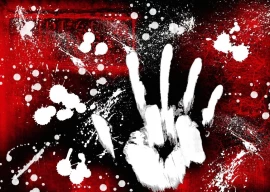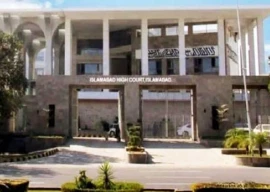
The non-profit World Justice Project's third annual Rule of Law Index takes stock of the development of the core legal concept in 97 countries and jurisdictions, based on interviews with 97,000 citizens and 2,500 experts.
It quantifies such factors as limited government powers, absence of corruption, order and security, fundamental rights, open government, regulatory enforcement, civil justice and criminal justice.
Worldwide, the Nordic nations - Denmark, Finland, Norway and Sweden - as well as the Netherlands scored best across all nine factors, according to the 228-page report.
In terms of order and security, Singapore and Hong Kong scored the highest of all countries, with regional neighbors Japan, Malaysia, Vietnam and South Korea also placing among the top 30. China was at 32.
But with the exception of Japan and Hong Kong, East Asian nations lagged in other areas.
China's "relatively effective" criminal justice system was compromised by political meddling and due-process violations, while its strict limits on freedom of speech and assembly put it near the bottom for fundamental rights.
Indonesia ranked last in East Asia in terms of corruption, and police abuses and harsh prison conditions were also deemed to be significant problems, according to the report.
Fundamental rights were a concern in Malaysia, the Philippines and Singapore, while Thailand lagged in terms of civil justice due to delays in processing cases and difficulties in enforcing court rulings.
Elsewhere, South Asia as a region came out as "the weakest performer overall in most dimensions of the rule of law," despite efforts in many countries to beef up governance, the report said.
India's independent judiciary, free-speech protections and relatively open government were countered by corruption and serious security concerns, while Pakistan was hampered by a low level of government accountability, corruption, a weak justice system and a poor security situation.
In its introduction the report - funded by major US charitable foundations and global corporations - stressed that no society has ever achieved perfection when it comes to applying the rule of law.
"It's a work in progress," Juan Carlos Botero, executive director of the World Justice Project, told AFP in an interview at its offices in Washington prior to the Rule of Law Index's release.
The United States was found seriously lagging in access to justice for low-income citizens, while Latin America was plagued by security concerns and the Middle East by a lack of respect for fundamental rights.
Botero said the report - featuring more countries this year than were in previous editions - is not so much a global league table as a tool for nations to compare themselves among peers and see what advances can be made.
"Placing the issue in a broader context creates a powerful argument to make improvements," he said.












































COMMENTS
Comments are moderated and generally will be posted if they are on-topic and not abusive.
For more information, please see our Comments FAQ